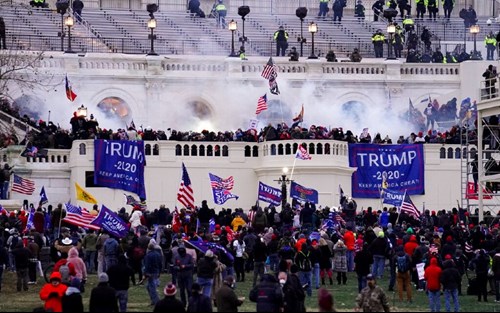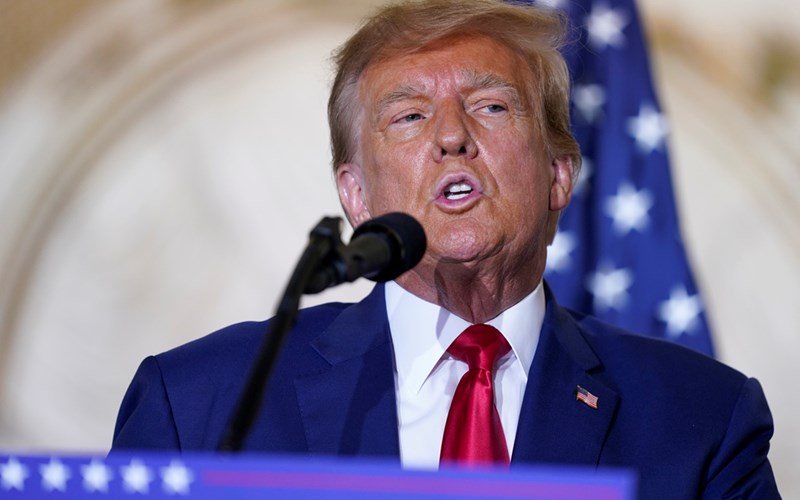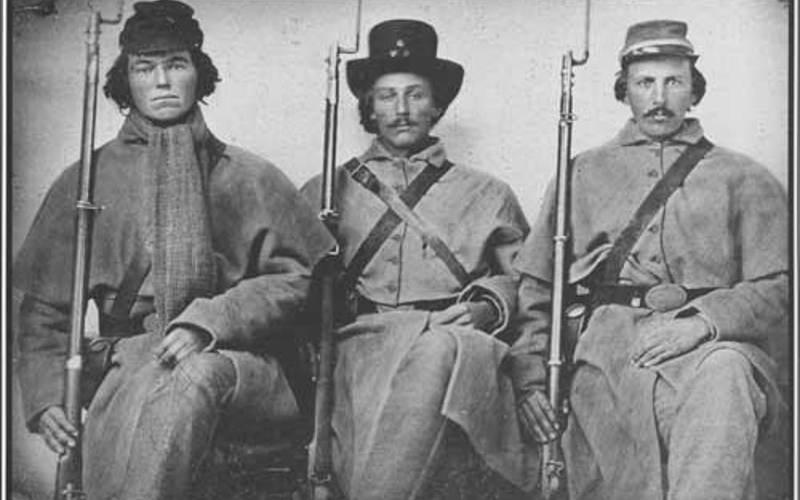West Virginia Attorney General Patrick Morrisey and Indiana Attorney General Todd Rokita were the lead signatories – joined by 25 other state attorneys general – on a brief filed last Friday urging the Supreme Court to reverse the decision of Colorado's court and allow Trump's name to remain on the ballot there.
The Republican National Committee filed a similar brief on Friday, the first day of the Supreme Court's new term.
The Supreme Court must decide if Trump is eligible for Colorado's GOP primary where that state's supreme court removed Trump in accordance with the insurrection clause of the U.S. Constitution's 14th Amendment. The clause prohibits anyone from holding office if they "engaged in insurrection" after swearing to defend the Constitution. It was added shortly after the Civil War to ensure that Confederates could not return to federal office.
Ohio Attorney General Dave Yost, a signer of the brief, noted on Washington Watch Monday that the legal challenge to Trump's eligibility is popping up across the country.

"I think there's 17 states that are in some portion of litigating whether Donald Trump is eligible to be on the ballot this fall for president if he were nominated by the Republican nominating electorate. Two of those state litigation pieces of state litigation have resulted in rulings that the President Trump is disqualified," Yost offered.
While more than half of America's state AGs are encouraging the high court to disregard an amendment aimed at political hopefuls who actually took up arms against the U.S., President Joe Biden's early reelection speeches seem to encourage the justices to take the opposite track.
Biden on the attack
In a campaign speech last Friday, on the eve of the third anniversary of U.S. Capitol protesters angry at the results of the 2020 election, Biden claimed that American democracy is in peril because of his opponent.
"Donald Trump's campaign is about him – not America, not you. Donald Trump's campaign is obsessed with the past, not the future. He's willing to sacrifice our democracy, put himself in power," Biden said.
The ruling in Colorado – and a similar one in Maine made by the secretary of state – have come without Trump being found guilty of insurrection by any other court.
The general expectation is that the Supreme Court's ruling on the Colorado case will likely impact Trump's myriad of other legal problems. Yost told show host Jody Hice the Colorado court has made an unlawful decision in the Trump case.
"That was a 4-3 decision in Colorado. There was a very well-articulated dissent that said that the Colorado Supreme Court was denying Donald Trump due process of law by its action," Yost said.
"In addition to that we have a constitutional provision that says in Section 5 of that same (14th) amendment that it's Congress's role to pass legislation enforcing the amendment – not [the role of] state court judges and certainly not the Secretary of State of Maine. I don't even know if that office existed when the 14th Amendment was passed," Yost added.
Insurrection is a term often used in media coverage to describe the events at the Capitol on Jan. 6, 2021. However, Yost pointed out the definition is unclear.
 "You're getting to the legal question. What is an insurrection for the purposes of the 14th Amendment, the law and disqualification," Yost said. "In fact, Congress has passed a law that says what insurrection is. It's a criminal statute that the government has to prove by proof beyond a reasonable doubt to convict somebody.
"You're getting to the legal question. What is an insurrection for the purposes of the 14th Amendment, the law and disqualification," Yost said. "In fact, Congress has passed a law that says what insurrection is. It's a criminal statute that the government has to prove by proof beyond a reasonable doubt to convict somebody.
"Not only has Donald Trump not been convicted of insurrection," the Ohio AG continued, "he hasn't even been charged with it, in spite of the fact that we've got a federal prosecutor who has brought two separate cases and chose not to charge under that section of law. That ought to tell you something."
Language in the Insurrection Act
According to The New York Times, the Insurrection Act allows the U.S. president to send armed forces to engage American citizens when states call for federal assistance to quell an "insurrection." "Obstructions, combinations and assemblages" are also part of language in The Insurrection Act. So are "domestic violence" or "conspiracy," should they interfere with the "course of justice" under federal law.
Yost argued the insurrection question as it relates to Trump has to be answered at the federal level.
"Why did the framers … of the 14th amendment give Congress the right to enforce, to make the laws regarding the insurrection clause? It's a very simple answer and obvious as the nose on your face: we can't have 50 separate states making 50 separate determinations. It would be chaos," he said.







